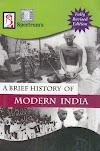International Relations: An Introduction
"Knowledge gathering is a life long process"
Syllabus of International Relations (IR)
Preliminary
- Current events of national and international importance.
Mains
- India and its neighbourhood relations.
- Bilateral, regional and global groupings and agreements involving India and/or affecting India's interest.
- Effect of policies and politics of developed and developing countries on India's interest.
- Indian diaspora.
- Important international institutions, agencies and forums - their structure and mandates.
International Relations (IR) - International relations (IR) is about relations among states/countries like India.
States - States are territorially bounded political community with sovereign authority and have external relations with other states.
In India, Ministry of External Affairs managed International Relations of India with other countries.
Foreign Policy -
- It is the general objectives that guides the activities and relationships of one state in its interactions with other states.
- It is the statement of ends and means of a state wrt to other states.
- The core function/goal of the Foreign policy is to pursuit National interest.
National Interest -
- It is the ends of a state.
- It is the goals on which there is a broad (political) consensus.
- It may change in specifics but broadly the goals of National interest are -
- Security
- Prosperity
- Status (Identity)
Determinants of Foreign Policy
- Geography (Topography) of the country
- History of the country
- Ideology of the country
- Economy of the country
- Domestic factors
- International factors
Example -
1. Geography
- The foreign policy wrt states having international borders is very much different from the interior states.
2. History/Ideology
- Indian history is characterised by many great leaders and saints like Buddha, Mahavira, Gandhi, etc.
- Their ideology very much influenced the foreign policy. As such Indian always follows a peaceful foreign policy.
3. Economy
- India is still a developing country → India adopted a foreign policy which attracts/protects the interest of indigenous as well as foreign investors.
4. International factors
- During WW II (USA vs USSR) - Two big giants are colliding. This scenario if continues would meant that the world would not remain stable → India advocated for Non-alignment (foreign policy)
Tools of Foreign Policy
- Diplomatic
- Economic
- Military
Forms of behaviour in IR - CCC Model
- Cooperation
- Competition
- Conflict (the aim of the foreign policy is to remove conflicts)
This behaviour is based on Interests.
If there are similarities in interest, it will lead to Cooperation whereas if there is a diverge in interests then it may either lead to Competition or Conflict.
These three elements have been visible in every Inetrnational Relation. For example - India-China Relation
Principles of India's Foreign policy
- Panchsheel Agreement
- Mutual respect for each other's territorial integrity and sovereignty
- Mutual non-aggression
- Mutual non-interference
- Equality and mutual benefit
- Peaceful co-existence
- Anti-Colonialism (Colonialism - domination of one country over other)
- Anti-Imperialism (Imperialism - control of one country over other)
- Non-alignment & Multi Literalism (engagement with more than two countries)
- Gujral doctrine
- With neighbouring countries like Bangladesh, Bhutan, Maldives, Nepal and Srilanka; India does not ask for reciprocity but gives and accommodates what it can in good faith and trust.
- No South Asian country should allow its territory to be used against the interest of another country of the region.
- No country should interfere in the internal affairs of another.
- All South Asian countries must respect each other's territorial integrity and sovereignty.
- They should settle all their disputes through peaceful bilateral negotiations.
- Neighbourhood first approach
- Act east approach
- Connect Central Asia approach
- Five S's approach
- Samman (Respect)
- Samvad (Dialogue)
- Sahyog (Cooperation)
- Shanti (Peace)
- Samriddhi (Prosperity)
Key terms
- Strategic interest/relations → long tern interest/relation
- Geo-Strategy → long tern strategy linked with geography.
- It provides direction to the foreign policy.
- Example - Malacca Strait is a geo-strategic location in Indian ocean
- Geo-Politics → Politics of locations or Politics in location
- Example - Nepal is Geo-politically important for India
- Power → (Hard/Soft/Smart) → It is the ability to influence intended outcome.
- Hard power → use of force/cohesive power
- Soft power → using persuasion/diplomacy/aid
- Smart power → Optimal combination of hard and soft power.
Source
- NCERT Class 12th - Contemporary World Politics
- Current Affairs related to IR
Notes on other subjects
Optional Notes
Note - This is my Vision IAS Notes (Vision IAS Class Notes) and Ashutosh Pandey Sir's Public Administration Class notes. I've also added some of the information on my own.
Hope! It will help you to achieve your dream of getting selected in Civil Services Examination 👍





0 Comments